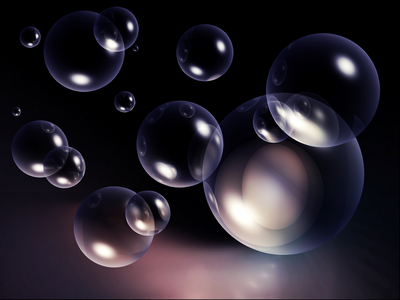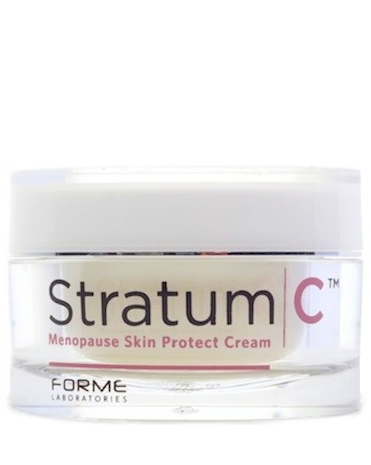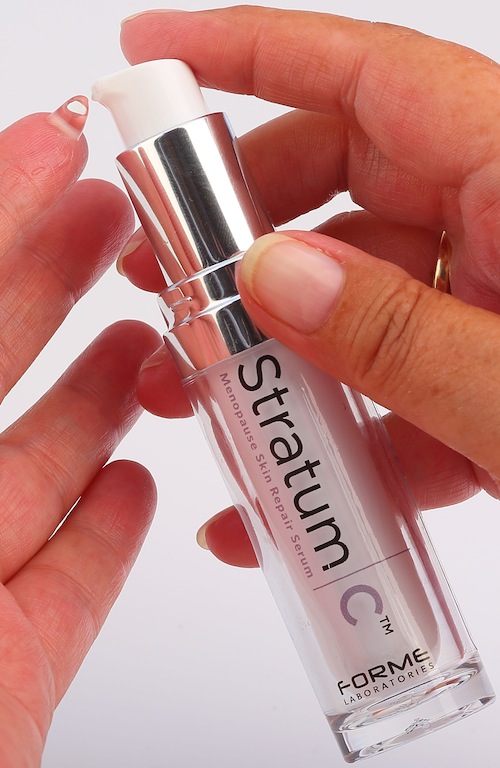The promise of the menopause skin cream – part 2
Do you remember Mikey, the kid who didn’t like anything, except Life cereal? Well, when it comes to menopausal promises, I’m just like Mikey. However, I am going to eat my words this month, words slamming Stratum C and the promise to restore the youthful glow. In October, I shared news about Stratum C, a new cream formulated specifically for menopause skin that had been shown to relax facial muscles AND build collagen, while simultaneously moisturizing, promoting elasticity and providing a radiant glow. After I slammed the manufacturers, they offered to send me a sample with the mutual understanding that I would try it for a month but that I made no promises.
The verdict? I love the way that Stratum C feels going on and I will state unequivocally that in this subject of one, it did appear to soften my lines and improve my skin’s moisture levels and appearance. Whether or not regular use would yield significant, lasting results is beyond my one month test but I will say that I liked it so much, that I’d be inclined to try it for a longer time period. However, I’m sticking by my guns with regard to Stratum C’s ultimate ability to reverse the ravishes of environment and natural aging. And while I will reiterate that there is absolutely no doubt that one of the peptides contained in this new cream and serum stimulates production of collagen (there are published studies demonstrating that), like a majority of dermatologists will tell you, a skin cream alone won’t turn back the signs of time permanently.
Keep in mind that, I only use skin products recommended by my dermatologist (I have rosacea and its accompanying acne issues). But guess what? I’m ready to do some show and tell the next time I visit him.
Hey Forme Laboratories! I like it. And as you’ve come to learn, that’s pretty unusual when it comes to products geared toward menopause.
Read More
Who are you wearing?
Labels. Our world’s full of them. And they are no more pervasive than when applied to women, particularly as we age and start to become invisible, not only to others but also to ourselves. In fact, I am becoming acutely aware that some of these labels have slipped into my vocabulary.
That’s why I’m beginning to more fully appreciate the move that Prince made years ago when he changed his name to a symbol and became “the artist formerly known as…”Granted, one can argue that it was a publicity move of epic proportions and it sure did garner a lot of attention. But at the same time, it also shifted control. Perhaps he became himself again.
On the brink of a major change, I am once again challenging myself to step outside the comfort zone that labels provide and consider if I am not one of the following, who am I?
- a middle-aged woman
- a Cougar
- menopausal
- a woman ‘of a certain age’
- an old maid?
Better yet? Who are you? Have you, like me, allowed yourself to slip into these labels like a comfortable pair of socks?
Our generation of women came of age on the tails of Gloria Steinem, Shirley Chisolm, Ann Richards and Bella Abzug, women who not only reinforced the message that we should live within our skins but, that we should do so proudly. And yet, many of us have shed that pride and as I wrote a few years back, have somehow stopped wearing ourselves, as if we’ve somehow crossed into the wardrobe of no return, where invisibility is safer than rebellion.
I’m certainly not going to start burning my bras or marching in Washington for older women’s rights (see, there I go again). But I am going to make damn sure that as I cross the threshold of a new home, I start wearing myself again.
What about you? Who are you wearing?
Read MoreWednesday Bubble: Menopause Skin Cream Redux
 Did you catch Monday’s post about Stratum C and the promise of this unique cream and serum on menopause skin? A few hours after the post went live, I received an email from one of the company’s representatives who explained that the products were not only backed by published data but were priced accordingly:
Did you catch Monday’s post about Stratum C and the promise of this unique cream and serum on menopause skin? A few hours after the post went live, I received an email from one of the company’s representatives who explained that the products were not only backed by published data but were priced accordingly:
“The combination of peptides in the products is unique and includes the optimum strength needed to counteract the effects of menopause. Both products also contain high levels of hyaluronic acid and low aqua content (approximately 40% in the cream and 18% in the serum, which in comparison to most high street products is a lot less than the usual 90% aqua content). The price reflects how we have used high levels and only the highest quality ingredients.”
While I stand by my initial comments with regard to the low number of women on which the products have been tested, I am always willing to be challenged on my assumptions. Consequently, I’ve agreed to try Stratum C and see how it goes. I don’t anticipate that the environmental toll that my facial skin has taken will be reversed but hey, you never know, right?
Stay tuned. This story is only just beginning.
Read MoreThe promise of the menopause skin cream
Have you heard about Stratum C? Evidently, this wonder cream, formulated specifically for menopause skin, has been shown to relax facial muscles AND build collagen, while simultaneously moisturizing, promoting elasticity and providing a radiant glow. And, it has science to back it up, you know, an unpublished study conducted in a whopping 10 subjects.
Moreover, as the product restores that youthful glow that menopausal women so crave and erases signs of aging, it will only set you back $195. The thing is, to obtain the best results, evidently you need to use it from the start of menopause symptoms until the last symptom occurs. That’s an average of 10 years.
Want to know what’s in this magical cream?
“In addition to the collagen stimulating peptides Stratum C was formulated to contain Hyaluronic Acid to hydrate and moisturise the skin even into the lower levels of the dermis. Finally to combat existing wrinkles we included a muscle tightening ingredient that has been shown in clinical trials to reduce existing deep wrinkles by 45% in just one month.The base moisturiser in Stratum C is based on natural luxurious products well known to the beauty industry including Jojoba Oil, Seaweed and Apricot Oil the latter being a good source of Vitamin A and E which are also lost during the Menopause.”
In women in particular, aging is accompanied by a loss of estrogen, which has been linked with as great as a 30% loss of collagen in the dermis (the thick, sturdy layer of connective tissue that comprises about 90% of the skin’s thickness) within the first five years of menopause. Collagen, which is the most abundant protein in the body, is responsible for skin’s durability and strength. As it declines, skin starts to sag and wrinkles form. Oh, happy day!
There is absolutely no doubt that one of the peptides contained in this new cream and serum stimulates production of collagen and there are published studies demonstrating that. The question is, however, whether or not a cream or serum contains enough of the ingredient to perform the way that it claims to perform. And quite honestly, a majority of dermatologists will tell you that while a cream can help promote moisture and is necessary, it won’t reverse the ravages of environmental exposure built over the years. Estrogen, for example, has been shown to increase collagen, help the skin retain water and promote elasticity, yet its ability to reverse the effects of aging remain questionable.
I am all for looking as good as we possibly can at any age. A lot of that has to do with genes, sunscreen, diet and prior exposure. And I will be last person to judge someone who wants to drop a bunch of money on the promise of youth. Me? I’d rather save my dollars for something that is proven to work and until that happens, I’ll follow the directions of my dermatologist and preserve what I have got the best I can.
Buyer beware. This one sounds way too good to be true.
Read MorePondering the weighty subject of… weight.

Guyside columnist Bob LeDrew will never be mistaken for this person.
I know I don’t. But I do see a certain uptick in that “time spent thinking about diet” graph in recent years.
As an adolescent, I was blessed with a metabolism that burned everything I could shovel into my mouth and then some. And even through most of my adult life, I really haven’t thought about diet beyond “when is the next meal?”
But as I edge toward 50, I have started to make some changes. Why? First, I have seen that little band of blubber around my waist grow from a finger-width to what is probably 15-20 pounds of weight I don’t really need. Second, my encounter with bladder cancer in 2006 led to some increased concern about health in general. Third, it was always so simple when you could go out for beer and wings at will and never show any effect (my personal best: 80 wings with an unwise quantity of beer to wash ‘em down in an evening), but when you start to feel the hangover from booze as well as post-gluttonous digestive effects, it makes you think.
At least when it comes to body image, I think men and women are working from two separate objectives. It’s my belief that generally, women are more affected by pop-culture images of women than men. I don’t look at Hugh Jackman and think “I’m grotesque.” I think men are more tied to the body image of their younger selves, and that it takes some sort of breakthrough for a man to realize that his body isn’t the same at 47 as it was at 17, or 27.
And of course, it’s clear that we men have some real issues around body image — and body reality. Even if you think you’re fine, men in the United States have a real-life obesity problem. Check this out.

These guys show the “average” man from each of the US, Japan, the Netherlands, and France
I certainly am aware of this reality. And I would like to make some changes. I don’t need or want to turn into the aforementioned Mr. Jackman. So here’s an entirely arbitrary list of what I think is going on with my diet — what I am doing right, and what I am doing wrong at this point?
Good points:
- I don’t eat a lot of fried food
- My vegetable intake is good
- I eat fish at least once a week
Now the weak points:
- Too many canned soups for lunch (bad for the sodium count)
- My long-term love affair with all things chocolate needs to be pruned
- Not enough snacking action using “healthier things” like fruit or things that aren’t chocolate
- I like beer
I’m going to start doing two things. I’m going to track how many healthy snacks I eat and how much chocolate I consume. And every week, I’m going to update this table as a way of being accountable to you — and to me.
| Healthy Snacks | Chocolate | |
| Week of October 13 | 0 | 2 bars, 1 gelato |
Wednesday Bubble: Newsflash – sleep and skin aging
Whoa! I have some news to share this week and it’s not good for those of us who struggle nightly with their sleep. Poor sleep has been linked to premature skin aging and an overall reduced skin health.
In what is being billed as a ‘first of its kind,’ University Hospitals Case Medical Center (Cleveland, OH), explain that their study (which was presented this past April at the International Dermatology Meeting in Edinburgh) evaluated 60 women between the ages of 30 and 49 (who, by the way, were premenopausal) who had been surveyed about their sleep quality using a scientific index. About half of the women reported having poor sleep quality and sleeping five hours or less a night.
Additionally, the researchers evaluated participants’ skin aging in terms of physiological factors (e.g. diminished collagen) and external factors (e.g. UV rays, smoking) that might contribute to skin aging, as well as assessing how well the skin was functioning to keep out damaging substances and maintain moisture.
Finally, the women were asked to maintain a sleep log for a week.
The findings are quite startling. Women who were classified as poor sleepers showed significant signs of aging that are associated with intrinsic (physiological) factors, including fine lines, uneven pigmentation, slackening and reduced elasticity. On the other hand, good sleepers appeared to have half of the signs of aging as their colleagues, and they also recovered more efficiently from factors that stress the skin, such as recovery from sunburn and inflammation. And, skin function was about 30% more efficient in good quality sleepers compared to poor sleepers; for example, they had better recovery from moisture loss tests.
The primary take away from these data, which appears in abstract form in the Journal of Investigative Dermatology, is that poor sleep may accelerate skin aging and hinder or weaken the ability of the skin to repair itself. The key to better skin aging? Get more zzzs!
Read More










